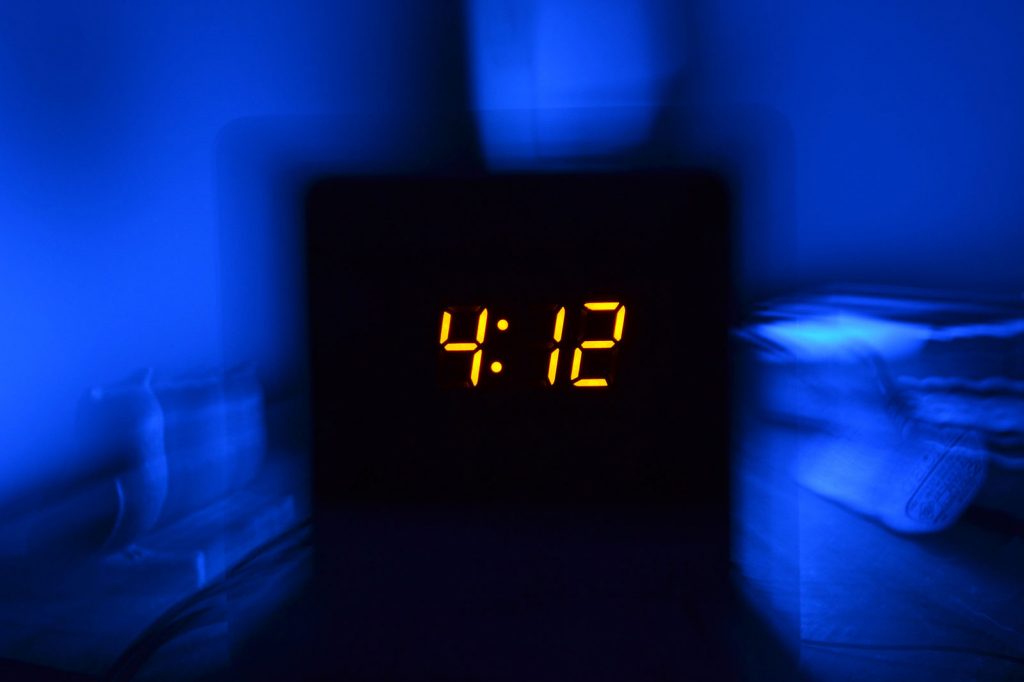
Written by Nancy Chen
Photos by Mary Keh and Nancy Chen
Edited by Monique Kuo & Dilber Shatursun
The Tzu Chi Alhambra Clinic held its first Tzu Chi Healthy Community workshop of the year on February 9th. Though the topic was mainly about integrative East-West medicine approaches for insomnia, both Ricky Chang, MD, and Yumin Cho, Ph.D in Chinese Medicine, shared information regarding COVID-19, or the new coronavirus pandemic, including recommendations on how to best protect themselves from infection.
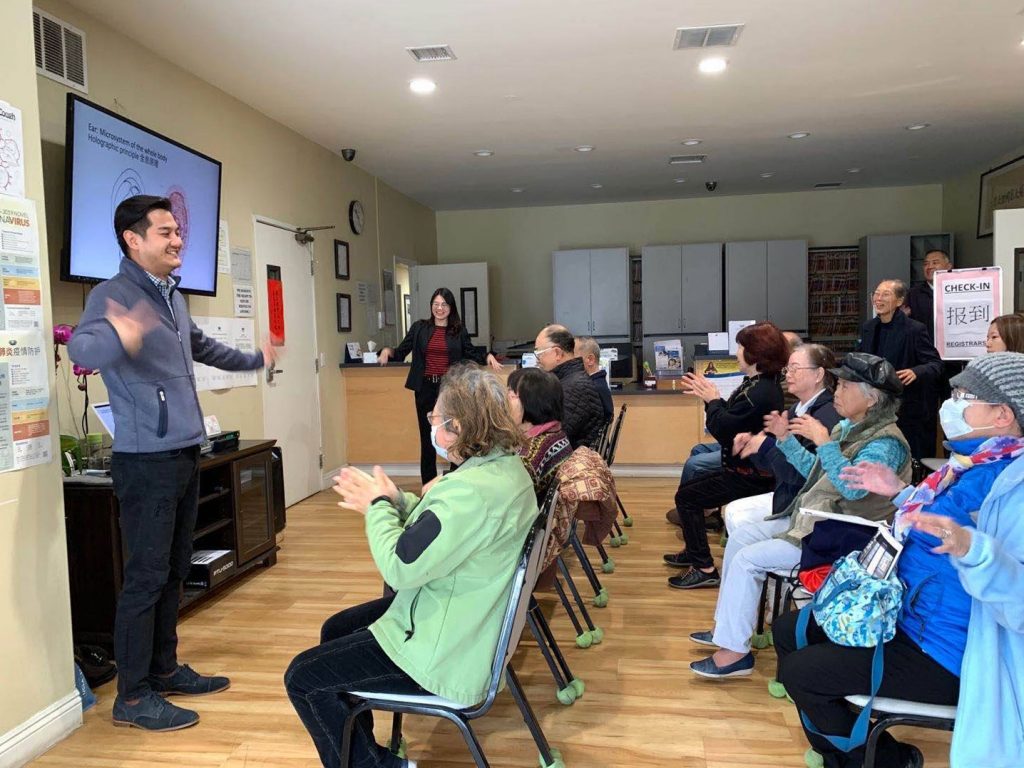
To start, their first recommendation is to wash hands frequently for at least 20 seconds each time. According to the Centers for Disease Control and Prevention (CDC), the virus can be spread person-to-person or direct contact with infected surfaces or objects. These surfaces or objects can be doorknobs, mobile phone screens, computer keyboards, faucets, toilets, etc. Unfortunately, it still remains unknown how long exactly the virus can survive on surfaces.
Hence, Drs. Chang and Cho couldn’t emphasize enough about the importance of washing one’s hands frequently and suggested to those in attendance to use hand sanitizer if no water or soap is available. They also cautioned touching one’s nose, mouth, and eyes with unwashed hands, and avoid going to crowded places.
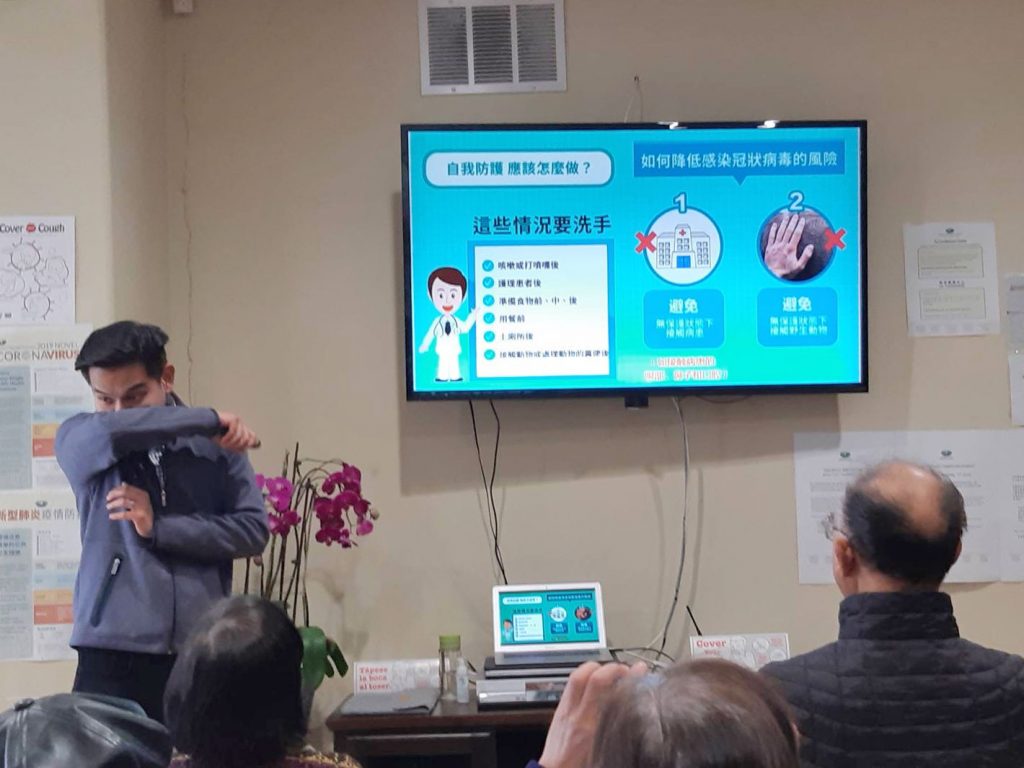
The doctors then elaborated on the symptoms of infection, which include fever, cough, shortness of breath, fatigue, and/or muscle aches. The second recommendation was that of self-protection, of correctly securing a mask, particularly in crowded spaces and the workplace. The upper brim of the mask should fit snugly on the bridge of the nose.
After the above reminders, Drs. Chang and Cho talked about insomnia and related health issues.
Generally, adults, who are 25 to 65 years of age, need to sleep 7 to 9 hours per night. During the daytime, one should try to be outdoors for 30 to 40 minutes per day for adequate sun exposure in order to regulate one’s circadian rhythm. Dimming the lights at home 1 to 2 hours before going to bed at night can also help prepare one’s body and brain for a night of good night sleep.
Insomnia is very common and it can be very frustrating. Drs. Chang and Cho explained it can be divided into two categories:
1) sleep onset insomnia
2) sleep maintenance insomnia
Common causes of insomnia are excessive activation of the sympathetic nervous system in which stress is commonly the underlying cause. Other common causes include stimulants such as coffee, tea, or other caffeinated beverages. Poor eating habits and a sedentary lifestyle can cause heartburn or GERD (Gastroesophageal reflux) and can disrupt sleep. The adverse effects of insomnia can cause poor memory, weight gain, aging, increased risk of heart disease, increased risk of cancer, and reduced immune function.
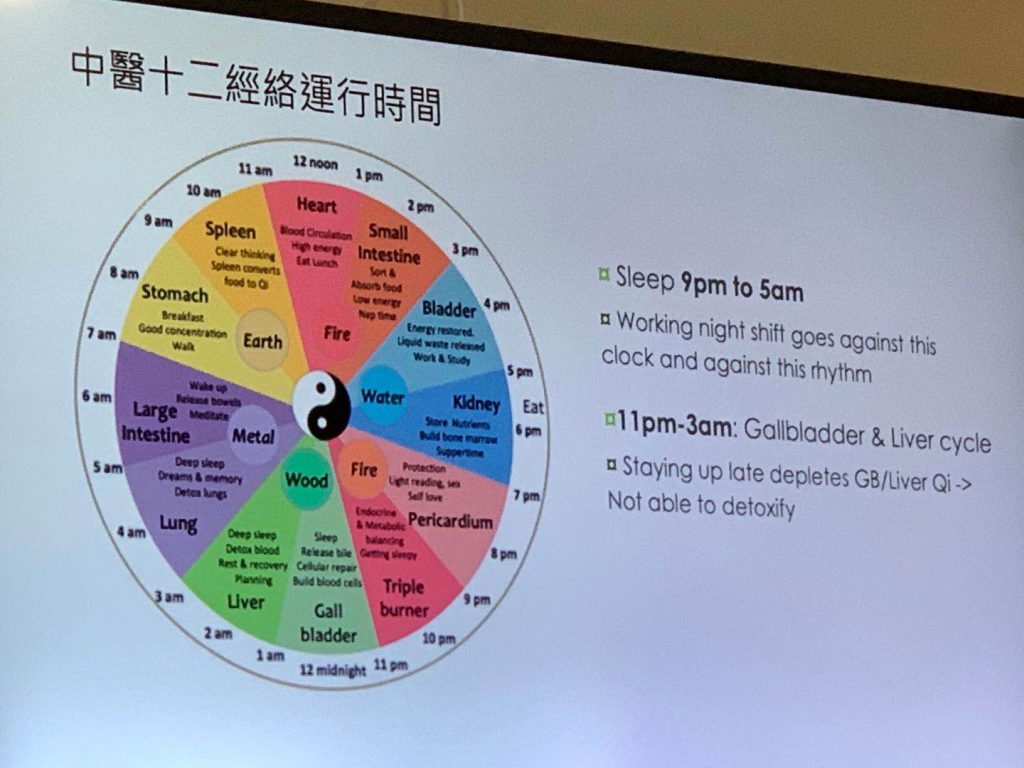
Based on Chinese medicine’s meridian clock, 9 PM to 5 AM is the recommended sleeping time and 11 PM to 3 AM is the resting time of the gallbladder and liver system. Hence, it is highly recommended to sleep by 11 PM in order to fully restore the liver and gallbladder system. In addition, it is also advisable to eat 3 hours before bedtime to prevent acid reflux.
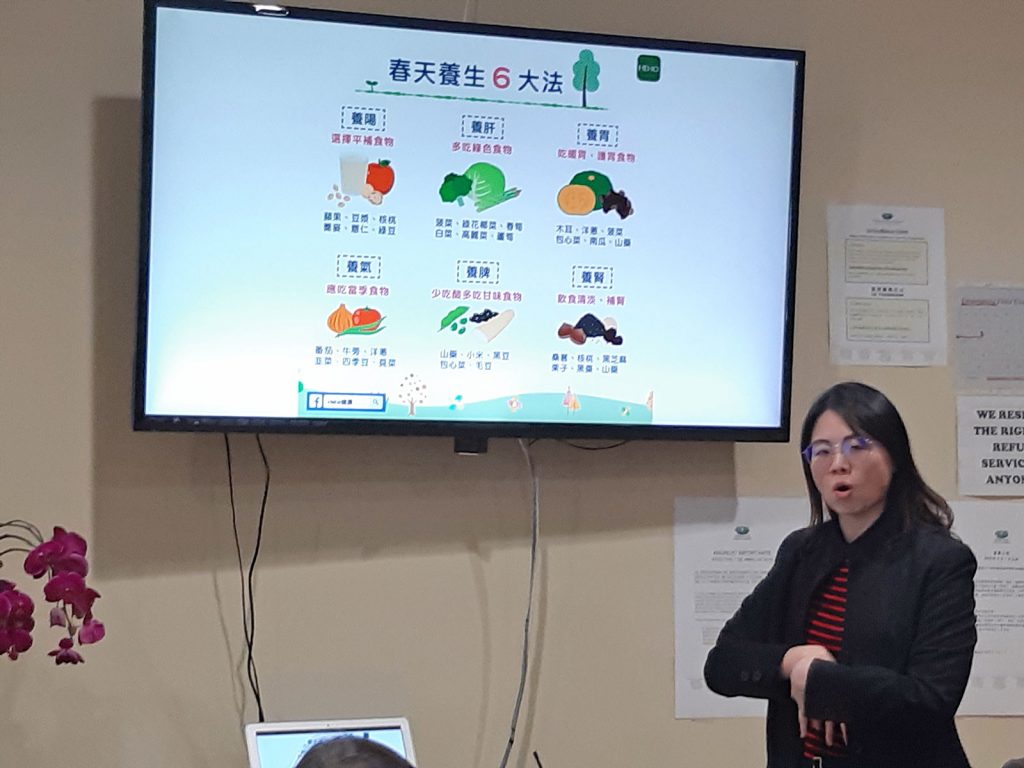
Insomnia can also be improved by maintaining an active lifestyle, such as meditation, Tai Chi or Qigong, and establishing good sleep habits for deep and restful sleep. If one has resistant insomnia, taking supplements and herbal tea can be incorporated to help generate good sleep.
The workshop was well received by the audiences who not only understood now about the causes and adverse impacts of insomnia but also learned the approaches to ensure a night of better sleep.





